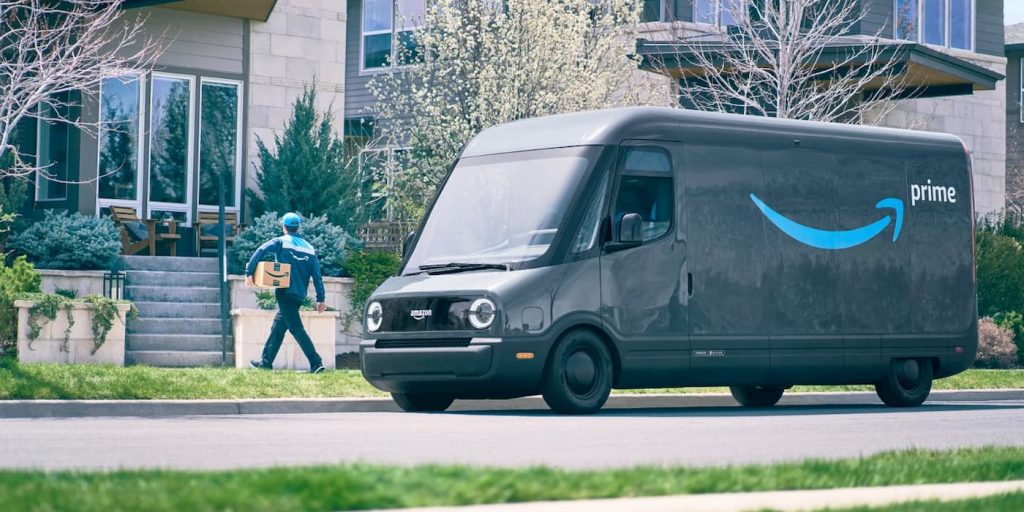Rivian is in discussion with its largest shareholder Amazon. The 2019 electric delivery van agreement will be ended. Rivian is seeking to remove the exclusivity part of the contract which could open up the possibility of signing new commercial customers.

Amazon initially invested $700 million in Rivian in 2019, releasing its first electric delivery van later that year, built and designed by the young EV maker. In September 2019, Amazon vowed to buy over 100,000 Rivian electric delivery vans (EDV), expected to roll out by the end of the decade as part of the Amazon cofounded environment commitment, The Climate Pledge, to reach net zero carbon by 2040.
The first Rivian and Amazon EDVs began making deliveries across Los Angeles in February 2021, reiterating the intention to expand the service to new cities. Last year, the service expanded to over 100 US cities, with 1,000 Rivian EDVs debuting during the 2022 holiday season. Leaders from both companies have praised the relationship, with the financial backing giving Rivian a lifeline as it ramps up EV production. It also contributes to Amazon hitting its climate goals. However, a new report from The Wall Street Journal on Monday claims Rivian is in contract talks with Amazon to end the exclusivity part of the initial contract.
More customers
According to sources familiar with the matter speaking to WSJ, the contract talks come after Amazon informed Rivian it wanted to purchase 10,000 EDVs in 2023, the lower end of the e-commerce giant’s previous guidance. A Rivian spokesperson said the relationship with Amazon “has always been a positive one,” adding, “We continue to work closely together and are navigating a changing economic climate, similar to many companies.”
The “changing economic climate” Rivian is referring to is higher interest rates and slowing demand across the economy after several years of explosive growth. Rivian and Amazon have both implemented cost-saving plans to reduce expenses and increase profitability. Amazon is laying off over 18,000 workers, while Rivian announced it was also laying off 6% of its workforce as it works to cut expenses in February. Although ending the exclusivity clause in the Amazon EDV contract would open up the possibility of Rivian seeking other commercial customers, it could be detrimental to the EV startup going forward. Amazon’s backing was a lifeline for Rivian as it ramped up production. Many investors overlooked the EV makers over billion-dollar losses ($1.7 billion in Q4) claiming Rivian had backing from Amazon and Ford. Ford trimmed its stake last month to a mere 1.15% ownership, and Amazon, with 17% ownership, is seemingly trending in a similar direction.












